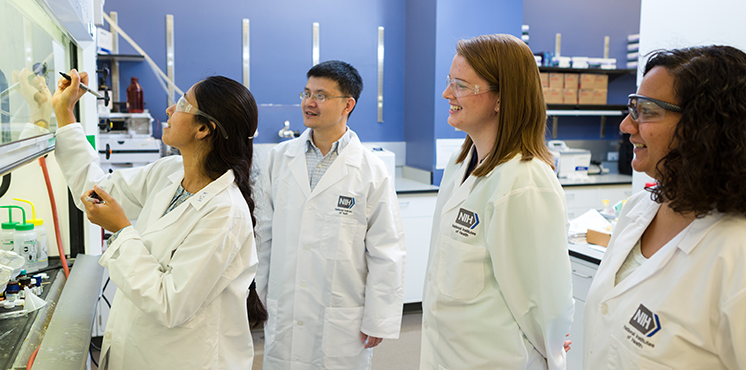Clinical Trial Readiness (CTR) for Rare Diseases, Disorders and Syndromes
We seek to encourage rare disease research by supporting efficient and effective movement of candidate therapies or diagnostics toward clinical trials and to increase their chance of success.
About CTR for Rare Diseases, Disorders and Syndromes
Contact
Clinical trials are key to developing and evaluating new treatments for rare diseases. Scientists, however, often do not have enough information about the symptoms and biology of rare diseases to design clinical trials. We worked with the Eunice Kennedy Shriver National Institute of Child Health and Human Development to create the Clinical Trial Readiness (CTR) for Rare Diseases, Disorders and Syndromes grants to address some of the obstacles scientists face, including gaps in our understanding of a rare disease’s natural history and a lack of suitable biomarkers or clinical outcome measures.
Through these grants, we seek to encourage rare disease research by supporting efficient and effective movement of candidate therapies or diagnostics toward clinical trials and to increase their chance of success. These grants are modeled after a grant program at the National Institute of Neurological Disorders and Stroke.
Current Funding Opportunities

Learn about research opportunities and how to apply for NCATS funds, as well as the center’s grant funding strategies, policies and more.
Funded Research

Find past and currently awarded projects via NIH Research Portfolio Online Reporting Tools Expenditures and Results (RePORTER).
Related Research

Rare Diseases
We support and carry out research that addresses the public health challenges posed by rare diseases.

Rare Diseases Clinical Research Network (RDCRN)
We oversee this NIH-wide program that supports medical research on over 200 rare diseases through clinical studies, including collaborations, study enrollment and data sharing.

Therapeutics for Rare and Neglected Diseases (TRND)
Through this in-house program, we support the preclinical development of therapeutic options for diseases with high unmet medical needs.


